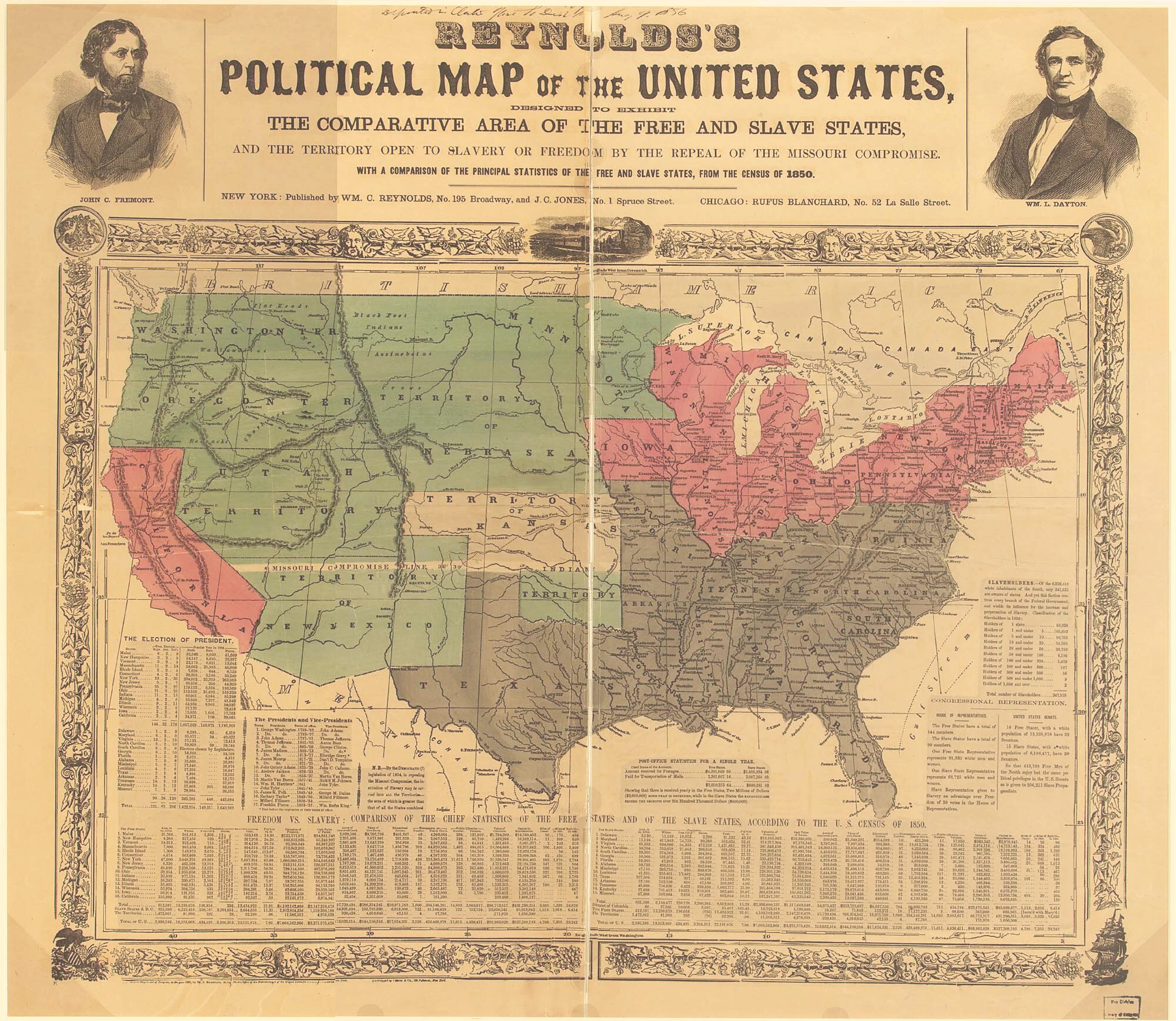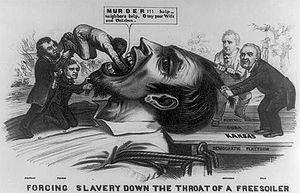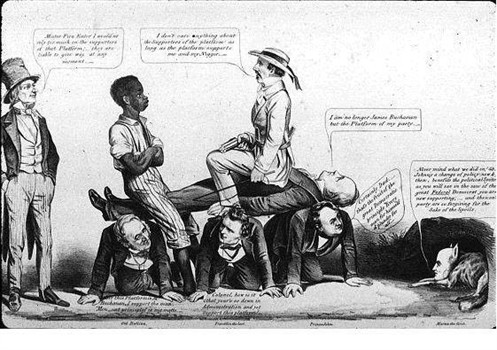
Commissioner of Indian Affairs, George Manypenny, reminded Congress that most of the territory included in the Kansas/Nebraska Act was already owned by Indian tribes and protected by treaties. Congress ignored these legalities and divided up Indian lands between slave and non-slave holdint territories.
Indian Commissioner George
Manypenny arrived with altruistic reverence for Indian
rights. Of the Kansas/Nebraska Act, he told Congress that
"the rights of person or property now pertaining to the Indians in
said Territories" were inviolate, and that all lands held by
Indians could "constitute no part of the [new] Territories… until
ceded by treaty or otherwise."

But within two years,
Manypenny reported to Congress how he successfully negotiated
numerous treaties of cession: "Since the 4th of March,
1853, fifty-two treaties with various Indian tribes have been
entered into…the quantity of land acquired by these treaties…is
about one hundred and seventy-four millions of acres…in no former
equal period of our history have so many treaties been made, or
such vast accessions of land obtained."
Manypenny was strongly influenced by
Thomas Fitzpatrick's criticisms of the Indian removal era commenced
by Andrew Jackson. He also adopted D.D. Mitchell's
solution to the Indian question in the West by promoting a program
of land allotment in severalty in the territories. But
Manypenny neglected to observe two of Mitchell's stipulations; 1)
that any land deeded to Indians could not be estranged for 50
years, and 2) that each Indian who acquired a section of land
should be made a citizen of the U.S.

This cartoon mocks the congressmen who compromised on the issue
of slavery to pass the Kansas/Nebraska Act.
(for more, click here)
Unfortunately, the program
faltered because the emigrant population, already struggling to
accommodate black men, had even less sympathy for the Indian.
In his report to Congress in
1856, Manypenny advised lawmakers that federal Indian policy needed
to be reworked. The unsettled conditions in the new
Territories had resulted in serious harm to the Indians:
"Trespasses and depredations of every conceivable kind have been
committed on the Indians…they have been personally maltreated,
their property stolen, their timber destroyed, their possession
encroached upon, and diverse other wrongs and injuries done to
them…their rights and interests seem thus far to have been entirely
lost sight of and disregarded by their neighbors."
Congress did nothing.
Related People
Related Events
Related Flashpoints